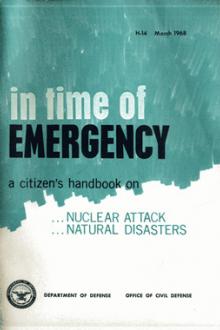Beautiful Things by Hunter Biden (books on motivation .txt) 📗

- Author: Hunter Biden
Book online «Beautiful Things by Hunter Biden (books on motivation .txt) 📗». Author Hunter Biden
I wanted to tell them about all of it. But at that hour, in that place, my escorts made it clear they weren’t interested in my bullshit.
“Whatever,” one of them said, signaling for me to get in the van.
The car’s interior was a train wreck; I’d been piloting that rental for ten hellacious hours—smoking, swerving, losing my shit—with the contents of my bag scattered everywhere. Joey and Morgan, rushing to get the hell back, helped me clear it out as best they could. I hopped in the van with them and headed off to get well.
Again.
I didn’t leave my bed for the next three days. Detoxing from crack isn’t as dangerous as quitting alcohol or as painful as getting off heroin. But a nonstop fourteen-day binge like I’d just gone through leaves the body depleted and dehydrated. Every joint ached like I had severe arthritis; my knees nearly disabled me and I thought the crick in my neck would be permanent. I had a fever and chills and near-panic-level anxiety and on the third day began to continually cough up a disturbing black phlegm. Lying alone in the clean, rustic setting of Grace Grove, with Joey checking in on me every hour and Puma slipping me herbal remedies, the only thing I craved was a crack pipe—the heat filling my mouth, the smoke singeing my lungs, that bareback rocket ride.
I’d left my wallet in the rental car. It contained my brother’s AG badge, which I carried everywhere, as well as a Secret Service business card I still had even though I’d canceled my security detail several years earlier. A Hertz employee cleaning out the car found some paraphernalia and a white-powder residue on an armrest. After googling my name and Beau’s, the manager called the local police—who called the Secret Service, who called my dad, who, I presume, called Hallie, since she was the only person who knew where I was. I’d left my cell phone in the car, too, so Hallie got in touch with Joey, who took care of things from there. I eventually got everything back.
The Prescott police called Grace Grove to inquire about me but dropped their investigation. I didn’t know anything about it until I got out of bed around day four, and dismissed it all as ridiculous. Despite the speculation in the right-wing media to the contrary, the cops weren’t strong-armed into dropping the case. As the Prescott city attorney, a man who served twenty years in the Arizona National Guard and had been deployed to Afghanistan, later told the New Yorker, “It’s a very Republican area. I don’t think political favors would even work, had they been requested.”
Still, the commotion freaked out the folks at Grace Grove, who knew I was there to recover from drug addiction but had no idea how bad it was. They asked if I had anything on me, worried the cops would show up and nose around. They went through my bag and pulled out all of my drug paraphernalia. Morgan then packed up everything I had and drove off into the high red-rock desert, where he buried it all with a kind of ceremonial earnestness, per the Grace Grove vibe.
He returned to the center several hours later, looking like he’d seen a ghost. His tanned, weathered face was ashen. When I asked what happened, he told me that while burying the instruments of my addiction he’d become violently ill. He then passed out and had apocalyptic visions. His dream’s prevailing image, he said: four horsemen wielding scythes atop fire-snorting steeds that were stampeding straight toward me.
I didn’t know what the hell to say to that—didn’t know whether to laugh or tremble. But the more he talked, the less it mattered. Whether what he saw was prophecy, revelation, or quackery, it struck me as a dead-on metaphor for how I experienced the power of crack and addiction.
Just days earlier, I’d flown over an interstate highway, and only hours after that I’d followed a mammoth bird through pitch-black mountain passes—all to escape the thing that had been chasing me most of my adult life. When I contemplate battling my addiction now, the image I conjure up is of that terrorizing band of skeletal night riders—the Four Horsemen of the Crackocalypse.
I got a lot better during the rest of my stay. I ate properly, meditated, attended a hypnotherapy session, and got cleanses. I didn’t smoke crack for the first time in at least fourteen days.
After a week, I left Grace Grove and checked into Mii Amo, a nearby resort spa. Feeling physically and mentally purged, I phoned Hallie and asked if she would come to Arizona to pick me up. I wanted her to accompany me on the trip back. I didn’t trust myself to make it home without backsliding—without taking a detour into the pit I fell into on my way there.
She flew out the next day. I was at my lowest, she was at her neediest, and we clung to each other with abandon. We talked at length about how much we had come to rely on each other, how our health and well-being seemed dependent on the love we’d grown to share.
There’s no question about the unseen force in the middle of it all: Beau. It seems obvious now, but then it was this unspoken, unacknowledged dynamic that had begun to impel us both: the idea that we could keep Beau alive by being together—that by loving each other we somehow could love him back into existence.
By the time we returned to Delaware at the end of the week, we were no longer just two people bound by shared grief.
We were a couple.





Comments (0)